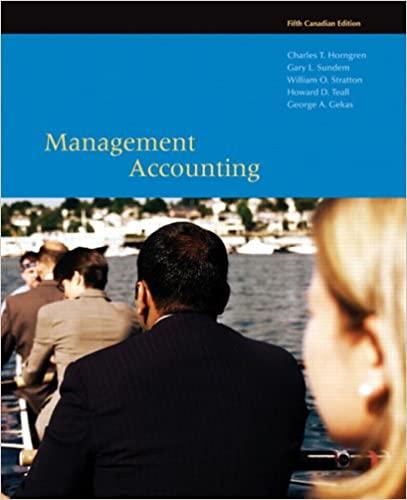Question
Profitability Ratios The following selected data were taken from the financial statements of Vidahill Inc. for December 31, 20Y7, 20Y6, and 20Y5: December 31 20Y7
Profitability Ratios
The following selected data were taken from the financial statements of Vidahill Inc. for December 31, 20Y7, 20Y6, and 20Y5:
| December 31 | |||||||
| 20Y7 | 20Y6 | 20Y5 | |||||
| Total assets | $4,800,000 | $4,400,000 | $4,000,000 | ||||
| Notes payable (8% interest) | 2,250,000 | 2,250,000 | 2,250,000 | ||||
| Common stock | 250,000 | 250,000 | 250,000 | ||||
| Preferred 4% stock, $100 par | |||||||
| (no change during year) | 500,000 | 500,000 | 500,000 | ||||
| Retained earnings | 1,574,000 | 1,222,000 | 750,000 | ||||
The 20Y7 net income was $372,000, and the 20Y6 net income was $492,000. No dividends on common stock were declared between 20Y5 and 20Y7. Preferred dividends were declared and paid in full in 20Y6 and 20Y7.
a. Determine the return on total assets, the rate earned on stockholders' equity, and the return on common stockholders equity for the years 20Y6 and 20Y7. Round to one decimal place.
| 20Y7 | 20Y6 | |
| Return on total assets | % | % |
| Rate earned on stockholders' equity | 17.32% | 28.34% |
| Return on common stockholders equity | 21.36% | 38.19% |
b. The profitability ratios indicate that Vidahill Inc.'s profitability has deteriorated . Because the rate of return on common stockholders' equity exceeds the rate earned on total assets in both years, there is positive leverage from the use of debt.
I only need the return on total assets, please.
Step by Step Solution
There are 3 Steps involved in it
Step: 1

Get Instant Access to Expert-Tailored Solutions
See step-by-step solutions with expert insights and AI powered tools for academic success
Step: 2

Step: 3

Ace Your Homework with AI
Get the answers you need in no time with our AI-driven, step-by-step assistance
Get Started


